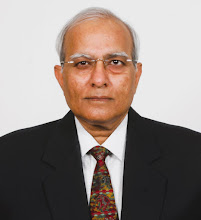A Call to Students: Transforming the Classroom Experience
Dear
Students,
Classrooms
are not just four walls with desks and a blackboard. They are living spaces
where ideas grow, where curiosity sparks, and where futures are shaped. Yet,
too often, classrooms fall silent, reduced to routine lectures, passive
listening, and hurried notes. The truth is: you hold the power to turn this
silence into energy and life.
Prerequisites for Sincere
Learning
• Come
prepared: Read the basics before class. A ready mind learns more.
• Be
attentive: Listen with focus, not casually. Every word can be important.
• Ask
questions without fear: Curiosity drives learning. Do not hold back.
• Respect
time: Arrive on time, stay engaged, and treat the classroom as a special place.
Turning a “Boring” Class into a
Vibrant One
• Engage the
teacher: Respond, nod, ask, and discuss. Teachers feel more motivated when
students show interest.
• Work with
classmates: Group discussions and peer help can make the class lively.
• Challenge
politely: If something feels old or unclear, raise it with respect and courage.
Should You Let the Teacher Switch
Topics Before Questions Are Answered?
No. Learning
is incomplete if doubts remain. Insist, politely but firmly, that your
questions be answered. A classroom is not a race to finish the syllabus; it is
a journey to understanding.
When Teachers Fall Short
Sometimes
teachers may not be updated or may struggle to solve academic problems. In such
cases:
• Look for
clarity elsewhere: Use the library, online resources, or ask other teachers.
• Write down
your doubts: Share them together with the department so they are noticed.
• Escalate
carefully: If problems continue, students can formally ask the administration
to assign a different teacher.
• Boycott only
as the last step: If the situation is serious and learning is blocked, a united
and respectful message to the Dean is stronger than silent withdrawal.
The Hidden Cost of Insincerity
Remember,
being insincere in class does not only harm your learning but it also puts
financial and emotional pressure on your parents. They believe their daughter
or son is working hard to build a career, but wasted classroom hours mean
wasted fees, wasted sacrifices, and wasted trust. Every careless moment in
class is a silent burden on the family that supports you.
The Larger Message
Good
teaching is a two‑way street. Teachers bring knowledge, but students bring
energy. When students demand clarity, liveliness, and relevance, teachers are
pushed to rise higher. By being sincere, curious, and fearless, you not only
improve your own learning—you also honour your parents’ sacrifices and inspire
your teachers to teach better.
Let
classrooms be places where questions are louder than answers, where curiosity
shines brighter than routine, and where learning becomes a shared adventure.
Escalation Checklist for Students
1. Engage
actively: Ask questions, challenge respectfully, and keep the classroom
lively.
2. Record
issues: Collect doubts and teaching gaps together for visibility.
3. Request
change: Submit a formal request to administration for a different teacher if
problems continue.
4. Boycott
carefully: As a united last step, communicate respectfully with the Dean of
Academic Affairs, explaining the reasons clearly.
Words of Comfort
Dear
Students, remember that education is not a burden but a gift. Every classroom
moment is a chance to discover yourself, to honour your parents’ sacrifices,
and to prepare for a future full of possibilities.
Even when
challenges come, know that you are not alone, your teachers, your classmates,
and your institution stand with you. Your sincerity today will become your
strength tomorrow.
Carry this
thought with you: “The classroom is not just where lessons are taught, it is
where dreams begin to take shape.”











